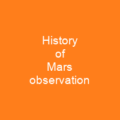What Is Discovery?
Discovery, the act of detecting something new or previously unrecognized as meaningful, is more than just finding a needle in a haystack; it’s like uncovering a hidden treasure map that leads us to uncharted territories of knowledge and innovation.
The Science of Discovery
In the realm of sciences, discovery involves observing new phenomena, actions, or events and providing new reasoning to explain gathered knowledge. It’s akin to being a detective, piecing together clues until you finally crack the case. How many times have we wondered about the mysteries that lie just beyond our current understanding?
The Five-Sigma Standard
In sciences, discovery requires observational evidence and a five-sigma level of certainty for acceptance. This stringent standard ensures that what is discovered isn’t just a fluke but a genuine breakthrough. Imagine standing on the edge of a cliff, looking out at the vast ocean of knowledge; only when you can see through the fog with clarity do you take that leap into the unknown.
Discovery in Education
In education, observation is used to identify students’ developmental and cognitive levels. It’s like being a gardener, carefully nurturing each plant until it reaches its full potential. How many times have we underestimated our students’ capabilities?
Teacher Observations
Teachers complete informal and formal assessments through various methods such as checklists, anecdotal notes, videos, interviews, and written work. These observations allow teachers to make necessary adaptations, develop relationships with students, and implement developmentally appropriate practices that promote healthier learning styles and positive classroom atmospheres.
The Classroom Assessment Scoring System (CLASS)
The CLASS tool is one such method used in education. It focuses on encouraging positive classroom environments, regard for students’ perspectives, behavior management skills, quality of feedback, and language modeling. Administrators rate each of ten categories on a scale of one to seven, with seven being the highest score.
Historical Perspectives
Western culture has used the term ‘discovery’ in their histories to lay claims over lands and people. Many indigenous peoples reject this term, considering it perpetuates colonialism and the concept of terra nullius. Alternative terms like ‘contact,’ ‘Age of Contact,’ or ‘Contact Period’ are used regionally.
Artificial Intelligence and Discovery
The Carnegie Mellon University Artificial Intelligence and Psychology Project delves into how artificial intelligence can replicate scientific discovery processes. Similarly, A Silberschatz and A Tuzhilin explore what makes patterns interesting in knowledge discovery systems. Tomasz Imielinski and Heikki Mannila provide a database perspective on knowledge discovery.
Conclusion
Discovery is not just about finding new things; it’s about transforming the way we see the world around us, pushing boundaries, and challenging our understanding of reality itself. As we continue to explore and discover, let us remember that every step forward is a leap into the unknown.

You want to know more about Discovery (observation)?
This page is based on the article Discovery (observation) published in Wikipedia (retrieved on February 22, 2025) and was automatically summarized using artificial intelligence.







